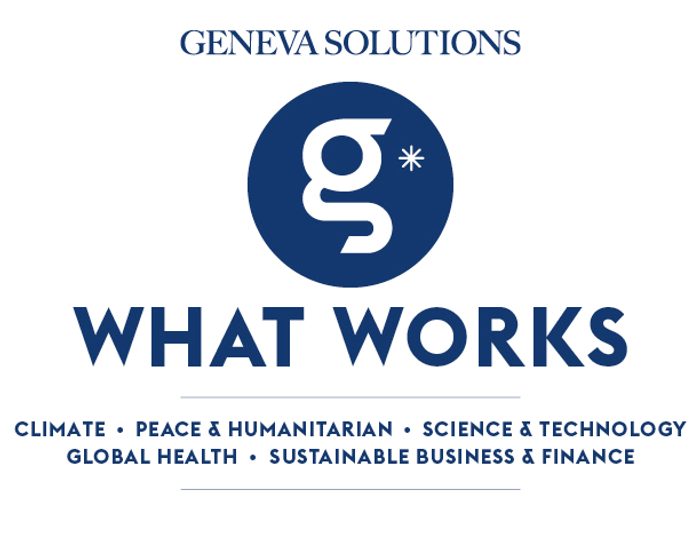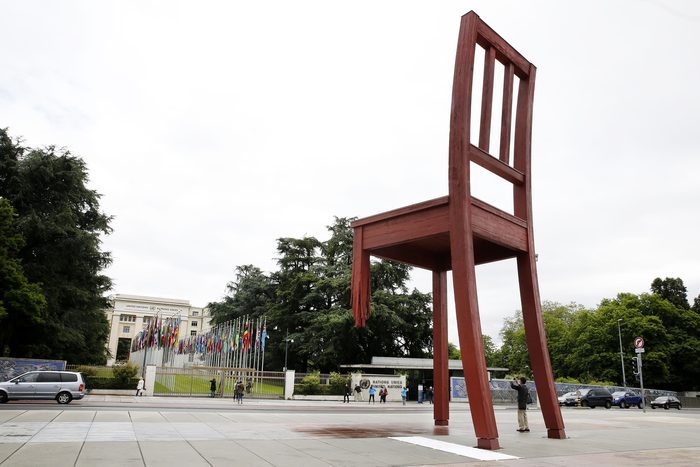|
Unveiled 25 years ago outside the United Nations, the Broken Chair is one of Geneva’s most striking landmarks. At 12 metres tall and weighing over five tonnes, the three-legged chair towers above the Place des Nations as a symbol of the ongoing campaign against landmines – the jagged remains of the chair’s fourth leg representing a missing limb, a reminder of their catastrophic impact on civilians.
Created by sculptor Daniel Berset, the Broken Chair was made for the NGO Humanity & Inclusion (HI), previously known as Handicap International, as part of its campaign calling on governments to sign the Anti-Personnel Mine Ban Convention, also known as the Mine Ban Treaty or the Ottawa Treaty, in December 1997.
The treaty, which came into force in March 1999, bans the production, transfer and stockpiling of anti-personnel mines and obliges countries to assist victims of such weapons. Signed by 162 states representing more than 80 per cent of the world’s countries, the treaty led to the destruction of millions of landmines and a fall in casualty numbers, with the use of landmines now widely stigmatised across the world.
In recent years, however, the use of landmines has been on the rise. As new conflicts have erupted in countries such as Syria, Afghanistan, Iraq and most recently Ukraine, these lethal and indiscriminate weapons are once again being used around the world, with civilians often the first collateral victims.
“I would love to say that everything is better now but unfortunately that’s not really the case,” Daniel Suda-Lang, director of Humanity & Inclusion Switzerland, told Geneva Solutions.
Read the full story on Geneva Solutions
|








